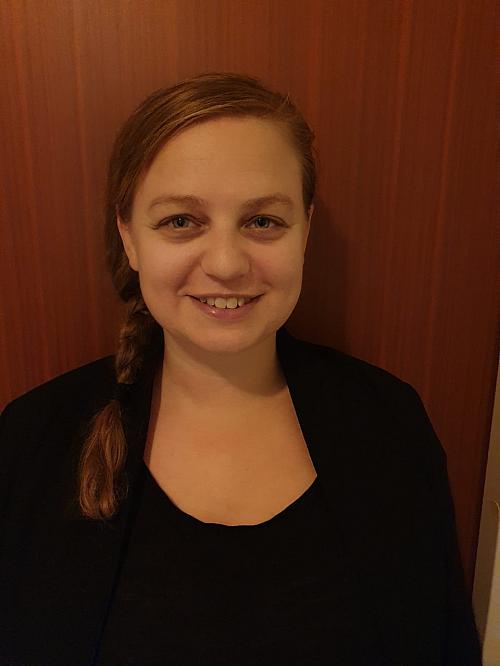SEK 9.9 million for research about the health and well-being of the elderly
The Swedish Research Council for Health, Working Life and Welfare, Forte, in its latest call for research to improve care and care for the elderly, has granted funds of approximately SEK 9.9 million to two projects at the School of Health and Welfare, Jönköping University.

The School of Health and Welfare, Jönköping University, has been awarded 9.9 million in research grants from Forte.
The project "Nursing homes as technological habitats – Digital technology supporting everyday citizenship, participation, and dignity for nursing home residents" with Lena Rosenberg, Professor of Occupational Therapy, as project manager, has been granted SEK five million. The project aims to develop knowledge about how digital technology can enhance everyday citizenship, participation, and dignity for older persons in nursing homes.
Digital technology is often highlighted as an important strategy for solving various challenges in eldercare. At the same time, there is a dominant understanding that the use of technology in eldercare is scarce, and digitization is something for the coming future. Yet, there is already a large amount of digital technology in use in nursing homes, for example, alarms, locking systems, computers, and smart phones. The elderly who move to nursing homes are also often active technology users - but attention is seldom paid to residents’ own digital use, neither in research nor in practice.
Learn from technology already in use
“The starting point of the project is to explore nursing homes as technological habitats where interactions between residents, their family, friends, staff, and various technologies are constantly ongoing. Through this, we can learn from technology that is already in use and better understand and promote the introduction of new technology in nursing homes,” says Lena Rosenberg.
The project will be carried out in special housing in the municipality of Jönköping.
Also participating are Camilla Malinowsky, Associate Professor, Karolinska Institutet, Ann-Charlotte Nedlund, Associate Professor, Linköping University, Dino Viscovi, Senior Lecturer, Linnaeus University, and Caroline Fischl, Assistant Professor, Jönköping University.
"Stress is an important factor in better understanding mental health problems"
The project "Patterns of stress across the life course and their role in mental health and loneliness in older adults" with Charlotta Nilsen, Assistant Professor in Gerontology, as project manager, has been granted almost SEK 4.9 million. The project aims to contribute knowledge about how exposure to different types of stressors (factors that lead to stress), throughout the life, affect the risk of mental health problems and loneliness in older adults.
Stress is an important factor in better understanding mental health problems, yet little is known about how the different stressors in different contexts throughout life is related to each other. There are also strong connections both between stress and loneliness and between loneliness and mental health problems, but the the stress-mental health-loneliness nexus throughout the life course is not well understood.
The research will contribute knowledge about how exposure to different types of stressors during life affect the risk of mental health problems and loneliness in older ages. It also looks at the relations between stressors, loneliness, and mental health across the life course - and how they can reinforce each other's effects. The project will also investigate how social resources and lifestyle factors can counteract the negative impact of stressors.
Follows a large number of individuals over a long period of time
Furthermore, the project will investigate how, for example, social networks, social support, sleep, physical activity, diet, smoking, and alcohol consumption impact these associations. The researchers will also study whether the various connections differ between women and men in different socio-economic positions.
“Life course research is important to better understand how risk factors, and health factors, accumulate over the life course, when during the life course the risk is greatest, and how different risk factors relate to each other. Thanks to large national cohort studies (survey studies), we can follow a large number of individuals over a long period of time. This type of research can be seen as a first step in preventive work and contribute to developing practical advice and interventions,” says Charlotta Nilsen.
Also participating in the project are Deborah Finkel, Jönköping University, Lawrence Sacco, Stress Research Institute, Stockholm University, Shireen Sindi, Karolinska Institutet, Caroline Hasselgren, Gothenburg University, and Martin Hyde, Swansea University, UK.
"Will contribute with increased knowledge that is important for both individuals and society"
“We are very happy that these two research projects at the School of Health and Welfare have been granted funds from Forte. The research grants enable important and urgent research that affects the elderly and aging from different perspectives. We look forward to following the research and its future results,” says Eleonor Fransson, Dean of Research at the School of Health and Welfare.
"Both projects will contribute with increased knowledge that is important for both individuals and society. It is very gratyfying that the School of Health and Welfare, through the projects, will contribute to the development of knowledge for older people and for society," says Marie Ernsth Bravell, Dean, School of Health and Welfare.
Contact
- School of Health and Welfare
- +46 36-10 1395
- Programme Manager
- School of Health and Welfare
- charlotta.nilsen@ju.se
- +46 36-550 2892


